| |
Environmental Sciences
|
| |
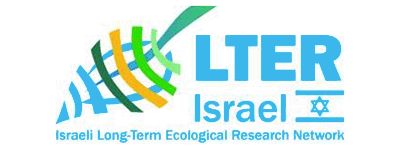
|
| |
Long-Term Ecological Research (LTER)
|
| |
LTER (Long-Term Ecological Research) is an international organization of 25 member countries focused on long-term, interdisciplinary ecological monitoring and research. It operates through a global network of research stations studying ecosystems using both natural and social sciences. Its goal is to build data infrastructure for forecasting ecological processes and supporting ecosystem conservation and management. |
 |
Dr. Avi Raveh, Deputy Chief Scientist, Ministry of Innovation, Science and Technology - (MOST), avir@most.gov.il
Dr. Shayli Dor Haim, Ben Gurion University of the Negev, shaylidh@post.bgu.ac.il |
|

|
http://lter-israel.org.il/
|
 |
| |
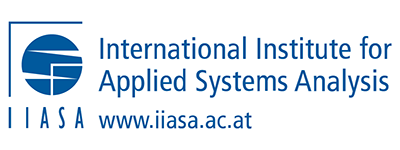
|
| |
International Institute for Applied Systems Analysis (IIASA)
|
| |
IIASA (International Institute for Applied Systems Analysis) is a global research institute founded in 1972, with 23 member countries. It conducts interdisciplinary and systems-based research to support policymakers in addressing long-term global challenges. Its six research groups tackle issues like climate, biodiversity, resources, demography, and economics using advanced systems analysis methods. |
 |
Dr. Avi Raveh, Deputy Chief Scientist, Ministry of Innovation, Science and Technology - (MOST), avir@most.gov.il |
|

|
https://iiasa.ac.at
|
 |
| |
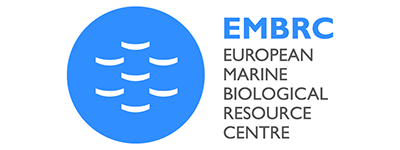
|
| |
European Marine Biological Resource Centre (EMBRC)
|
| |
EMBRC (European Marine Biological Resource Centre) is a European research infrastructure consortium that provides scientists access to marine organisms, experimental facilities, and advanced platforms for studying marine biodiversity. Through its network of marine stations, EMBRC supports cutting-edge marine research across member states. It fosters international collaboration and promotes marine science at a global scale. |
 |
Dr. Moshe Ben Sasson, Director of Environmental Sciences, Agriculture and Water, Ministry of Innovation, Science and Technology - (MOST), moshebs@most.gov.il |
|

|
https://www.embrc.eu
|
| |
|
| |
|
| |
Life and Medical Sciences
|
| |
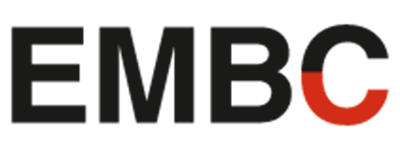
|
| |
European Molecular Biology Conference (EMBC)
|
| |
EMBC (European Molecular Biology Conference) is an intergovernmental organization established in 1969, comprising 30 member states and around 1,700 scientists. It promotes European cooperation in molecular biology through its General Programme. EMBC funds EMBO activities, including research grants, fellowships, training courses, and workshops, with a strong focus on supporting young researchers and scientific mobility. |
 |
Dr. Iris Eisenberg, Director of Life Sciences, Ministry of Innovation, Science and Technology - (MOST), irise@most.gov.il |
|

|
https://embc.embo.org
|
 |
|
|
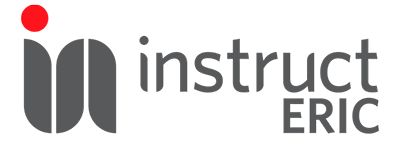
|
 |
Instruct – ERIC- European Research Infrastructure Consortium in Structural Biology
|
| |
Instruct-ERIC is a European program designed to integrate and merge advanced technological infrastructures for structural biology research, aiming to combine molecular understanding at whole-cell resolution. The initiative requires technological and methodological development alongside basic research. Israel joined this project in its early stages during European infrastructure mapping. Through Israel's participation, Israeli scientists are eligible for grants and access to services and facilities. |
 |
Dr. Iris Eisenberg, Director of Life Sciences Research, Ministry of Innovation, Science and Technology - (MOST), irise@most.gov.il
Prof. Joel Sussman, Weizmann Institute of Science joel.sussman@weizmann.ac.il |
|

|
https://instruct-eric.org/
|
 |
| |
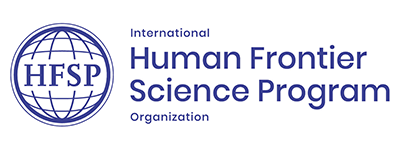 |
| |
Human Frontier Science Program (HFSP)
|
| |
HFSP (Human Frontier Science Program) is a prestigious international organization founded in 1989 to support cutting-edge, interdisciplinary research in the life sciences. It includes 14 member countries worldwide and is known for promoting scientific excellence. Since becoming a full member in 2019, Israeli scientists can submit research proposals as principal investigators. |
 |
Dr. Iris Eisenberg, Director of Life Sciences Research, Ministry of Innovation, Science and Technology - (MOST), irise@most.gov.il |
|

|
https://www.hfsp.org
|
 |
| |
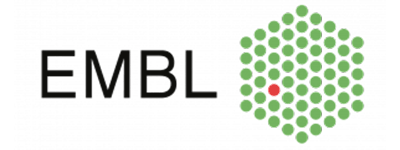
|
|

|
European Molecular Biology Laboratory (EMBL)
|
| |
The European Molecular Biology Laboratory, where research is conducted by groups from across Europe on all molecular biology topics. Israel has been an EMBL founding member since 1974. Israel's participation enables Israeli scientists to access unique, large-scale research infrastructures that individual institutions cannot afford. Additionally, membership allows Israeli scientists to participate in European infrastructure organizations that rely on EMBL. |
 |
Dr. Iris Eisenberg, Director of Life Sciences Research, Ministry of Innovation, Science and Technology - (MOST), irise@most.gov.il |
| |
Prof. Joel Sussman, Weizmann Institute of Science joel.sussman@weizmann.ac.il |
|

|
https://www.embl.org/
|
| |
|
 |
| |

|
|

|
European Life-Sciences Infrastructure for Biological Information (ELIXIR)
|
| |
ELIXIR is a European intergovernmental organization aimed at building and operating infrastructure for analyzing, retrieving, and preserving life sciences and medical databases. The repository enables researchers to share information and expertise while agreeing on optimal research practices and protocols for understanding living organisms. Israel's participation provides scientists access to biological databases and grants for courses and training programs. |
 |
Dr. Iris Eisenberg, Director of Life Sciences Research, Ministry of Innovation, Science and Technology - (MOST), irise@most.gov.il |
| |
Dr. Dan Ben-Avraham, Weizmann Institute of Science dan.ben-avraham@weizmann.ac.il |
|

|
https://elixir-europe.org/
|
| |
|
 |
| |
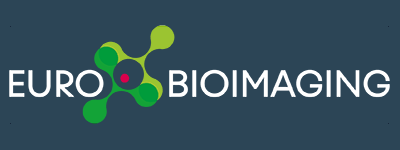
|
|

|
Euro Bioimaging (EuBI)
|
| |
Euro-BioImaging is a research infrastructure offering open access to biological and biomedical imaging technologies, training, and data services, enabling world-class innovative research. It comprises imaging facilities called Nodes across Europe and Israel, accessible to scientists from member countries. Facilities are staffed by skilled personnel providing scientific-professional support, including training in all imaging aspects from research planning to image capture, courses for various expertise levels, and assistance with scan data management, storage, distribution, analysis, and conclusions. |
 |
Dr. Sharon Yagur-Kroll, Scientific Officer of Bio-Medical Research, Ministry of Innovation, Science and Technology sharonyk@most.gov.il |
|

|
https://www.eurobioimaging.eu/
|
| |
|
| |
Physics
|
| |
|
| |

|
| |
Synchrotron-light for Experimental Science and Applications in the Middle East (SESAME)
|
| |
SESAME (Synchrotron-light for Experimental Science and Applications in the Middle East) is an intergovernmental scientific initiative focused on building and operating a synchrotron light source in Jordan. It promotes scientific collaboration and civilian research in the Middle East and Mediterranean regions. The facility is fully operational and regularly issues calls for research proposals. |
 |
Prof. Eliezer Rabinovici, Hebrew University of Jerusalem eliezer@mail.huji.ac.il |
|

|
https://www.sesame.org.jo
|
 |
| |
 |
| |
European Organization for Nuclear Research (CERN)
|
| |
CERN (European Organization for Nuclear Research), founded in 1954, is the world's largest center for particle physics research, with 20 European member states. It operates the LHC, the most powerful particle accelerator globally. Israel became CERN's first non-European full member in 2013, following years as an observer, and actively contributes to its scientific work. |
 |
Prof. Marek Karliner marek@tauex.tau.ac.il |
|

|
https://home.cern
|
| |
|
| |
|
| |
Social Sciences
|
| |
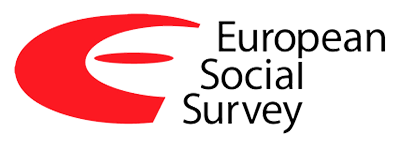
|
| |
European Social Survey (ESS)
|
| |
The European Social Survey (ESS) is a biennial, cross-national survey that collects data on attitudes, values, and behaviors through interviews with adult populations in 34 countries. Launched in 2002, it supports comparative and longitudinal social research. Israel participated as a guest for many years and became a full member in 2020. |
 |
Dr. Alex Atshuler, Scientific Director of Social Sciences and Humanities, Ministry of Innovation, Science and Technology - (MOST), alexa@most.gov.il
Dr. Irit Adler, Tel Aviv University, iriad@tauex.tau.ac.il |
|

|
https://www.europeansocialsurvey.org
|
| |
|
 |
| |
|
| |
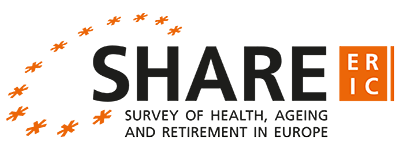 |
| |
Survey of Health, Ageing and Retirement in Europe (SHARE)
|
| |
SHARE (Survey of Health, Ageing and Retirement in Europe) is a multidisciplinary longitudinal study collecting micro-data on health, socio-economic status, and social conditions of adults aged 50+. Conducted in 28 countries, including Israel, it enables dynamic aging research and international comparisons. It is a key resource for aging studies in Europe and Israel. |
| |
Dr. Alex Atshuler, Scientific Director of Social Sciences and Humanities, Ministry of Innovation, Science and Technology - (MOST), alexa@most.gov.il |
 |
Iris Cohen, Ministry for Social Equality, irisc@mse.gov.il
Prof. Sharon Shiovitz-Ezra, Head, Gerontological Data Center, sharon.shiovitz@mail.huji.ac.il |
|

|
https://share-eric.eu
|
| |
|
| |
|
| |
Multiple disciplines
|
| |
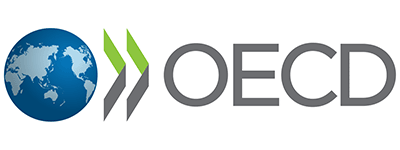
|
| |
Organization for Economic Co-operationand Development (OECD)
|
| |
The OECD (Organisation for Economic Co-operation and Development) is an international body of over 30 developed democracies committed to free-market principles. It promotes economic growth and quality of life through science and technology policy. Israel became the 33rd member in 2010 and actively participates in the OECD's science and research policy forums, including the Global Science Forum (GSF). |
 |
Barak Gatenyo, Head of International Organizations Desk, Division of Foreign Relations, Ministry of Innovation, Science and Technology - (MOST), barakg@most.gov.il |
|

|
https://www.oecd.org/en/networks/global-science-forum.html
|
| |
|
 |
| |
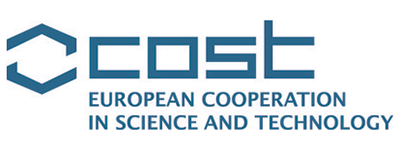 |
| |
European Cooperation in Science and Technology (COST)
|
| |
COST (European Cooperation in Science and Technology) is an EU-funded program under Horizon, established in 1971 and involving 38 countries. It aims to build research networks across all scientific fields by supporting meetings, workshops, and working groups, including academic and industry participants. Israel joined in 1998 and has participated in over 600 COST Actions. |
 |
Barak Gatenyo, Head of International Organizations Desk, Division of Foreign Relations, Ministry of Innovation, Science and Technology - (MOST), barakg@most.gov.il |
|

|
https://www.cost.eu
|